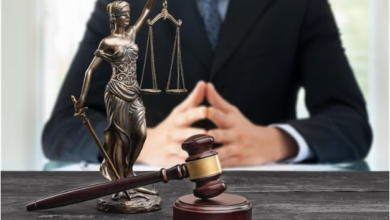What interviewing skills do sports journalists need to succeed?

Journalism is a challenging career that requires many skills to be successful. When dealing with a particular segment of the population like professional athletes, a journalist needs to have confidence, be prepared, and ask the right questions. These skills, among others, make an interview engaging and entertaining to watch, and shed light on information that may not have otherwise been known. When a sports journalist is good at their job, they can make an interview seem effortless and put the interviewee at ease, making them comfortable enough to share interesting facts about themselves.
Be prepared
Before the interview, sports journalists should research the interviewee, their background, recent performances, and relevant news. This helps them ask informed and relevant questions. There is no bigger turn-off than a reporter who does not have their facts straight, or worse, gets the information wrong. Athletes train intensively to become peak performers in their sport, and they appreciate when that effort is acknowledged.
A good journalist will study the athlete before setting foot in the room for the interview and will have pertinent information memorized. The interviewee should feel that they are important and understood, and that the journalist knows their story. This is especially important when interviewing a sports figure that has had to endure hardships in their life to get to where they are. If an interviewer glosses over that important aspect, it can make the interviewee feel like their struggles are not of any importance to the journalist. Coming to an interview prepared also shows respect, which goes a long way to gaining the trust of the subject.
Research does not just mean performing Google searches online and taking the information as fact. The journalist must make sure that the details they find can be corroborated and are not just an opinion or rumor. This can be difficult in some cases when there is a particularly interesting tidbit in the news or on social media and the journalist cannot find anything to corroborate. This can then be a topic of discussion with the interviewee, which is treated as a rumor the journalist wants to hear their opinion on.
Be confident
It is important for sports journalists to be confident and maintain a professional demeanor during interviews. This confidence instills trust in the interviewee and helps create a comfortable atmosphere. A journalist without confidence will make the interviewee uncomfortable and will seem unprofessional and unprepared. Speaking softly, not making eye contact and stumbling over words are all signs of a lack of confidence that will not impress the subject and they will probably end up cutting the interview short.
Some individuals have natural confidence and some need to learn it. Speaking confidently is something that can be taught in tandem with an Online Sports Journalism Degree. Accredited schools such as St. Bonaventure University teach individuals looking for an advanced degree the necessary skills and knowledge so that when they are in the field, they are confident in their abilities. They help foster this confidence with hands-on experience covering events from the press row.
Active listening
Effective sports journalists actively listen to interviewees’ responses to fully understand their points of view. This helps journalists ask follow-up questions and dig deeper into the topic. It is also important to listen carefully when applying for a job as a sports journalist because the interviewer will provide clues as to the types of answers they want to hear.
When a journalist is interviewing a sports figure, they usually have a list of questions they have prepared. An inexperienced journalist may want to jump right into the questions and either not listen to the interviewee, who may want to break the ice, or ask one question after another without acknowledging the answers given. This can prevent a journalist from having a meaningful rapport with the interviewee and can cause them to miss some important information that could improve the interview.
Communicate effectively
When conducting an interview, it helps for the questions to be well thought out and easy to understand. If a question is complicated or asked in the wrong way, that can derail the entire interview and could end up with the interviewee getting frustrated and refusing to answer. When a journalist communicates effectively with an interviewee, they are asking questions that can elicit more than a one-word response, but they can also evoke a passionate response from the interviewee.
When a journalist has studied the sports personality they are interviewing closely, and they understand what makes that person tick, they can communicate that knowledge in thoughtful questions that bring the interviewee out of their shell or guide them on a path to answering the question.
Be adaptable
Interviewers must be willing to adapt and switch gears based on the interviewee’s responses. They should be flexible enough to explore unexpected angles or dig into a particular point of interest. Along the same lines as listening carefully to the interviewee, being able to pivot when a surprising piece of information is brought up during an interview is essential to being a successful journalist. Listening and adapting to unexpected revelations or stories can make a humdrum interview an instant success because the journalist was able to adapt and change their direction quickly.
Being adaptable also means being able to handle any curveballs that may be thrown their way. A journalist never knows what may be greeting them when they walk through the door for an interview, or if events beyond their control have changed the mood of the interviewee. An adaptable journalist needs to be able to listen carefully and feel the temperature of the interview and adjust their questions accordingly. An example is a sports personality that may have just had a fight with their spouse or found out some bad news about a loved one. The sports journalist must notice the feelings of the interviewee and potentially address the issue, or pivot away from the questions they originally intended to ask.
Ask open-ended questions
Asking open-ended questions encourages interviewees to provide detailed, opinion-based answers, rather than simple yes-or-no responses. Open-ended questions allow for a more engaging and informative interview because the questions will get the interviewee talking about what they feel passionate about. When the subject is engaged in the interview it is less like a journalist grilling a sports figure but feels more like two friends speaking, which is more entertaining to watch.
Open-ended questions will also help the flow of the interview and make it seem less robotic and stilted. The conversation should flow naturally, and the interviewee should feel free to express themselves openly. Open-ended questions can also encourage the subject to elaborate on issues important to them, which they will appreciate after the interview is over.
Show empathy
Sports journalists should be able to understand and empathize with the interviewee’s experiences, emotions, and challenges. This can help build trust and foster better communication. It is essential for a good interview that the journalist is viewed as an empathetic and interested interviewer rather than someone who is only interested in getting a story. Empathy is especially important for those interviews where the subject has gone through a traumatic event that affected their performance. The ability to show empathy will have the interviewee trusting the journalist and sharing their thoughts, feelings, and experiences which makes for a much more in-depth and interesting interview.
Keep the interview on track
If an interviewee goes off-topic or diverts from the original question, it is the journalist’s responsibility to tactfully bring the conversation back while respecting the interviewee’s thoughts. This is always a danger when the interviewer has set a comfortable atmosphere and asked questions that allow the interviewee to elaborate. While it is a good thing to have the subject of the interview comfortable enough to express themselves, some individuals can go in a completely different direction in the conversation. A good journalist will be able to re-direct the interview without being offensive or pushy and keep it on track.
Skillfully and tactfully bringing the interviewee back to the topic of the interview is a skill that comes with experience and time. The more prepared a journalist is for the interview, the easier they will find it to ask the right questions to get the interviewee talking about the desired topics.
Ask follow-up questions
To gather additional information or clarify responses, sports journalists should ask follow-up questions, ensuring a comprehensive understanding of the subject matter. Asking questions also shows the interviewee that the journalist has been paying attention and is interested in learning more. This shows respect and helps the interviewee feel more comfortable, so they are apt to share more during the interview.
Follow-up questions also help the journalist get a better understanding of the topic of discussion and tie up any loose ends or answer any related questions. The interviewee may say something interesting but not elaborate on it, so it is up to the journalist to explore the topic further.
Pay close attention to details
It is crucial for a journalist to pay attention to details when writing an article or conducting an interview. When an interviewee needs to correct a journalist on an inaccurate detail, or the journalist raises an incorrect point but treats it as fact, it can derail an interview quickly. Attention to detail also means knowing that the interviewee is sensitive about certain subjects so they must be avoided or brought up delicately. It also shows that the journalist knows their business and has respect for themselves, the interviewee, and the journalistic process.
Attention to detail means taking the time to double check the facts that are uncovered during the research phase before the interview. It shows professionalism and a commitment to getting the details correct before presenting them to the interviewee.
Use positive body language
Expressing oneself through non-verbal cues, such as nodding, maintaining eye contact, and displaying engaged body language, conveys interest and encourages interviewees to share more. Body language is also a product of confidence and is a skill that can be practiced and cultivated. There are many different courses on body language, teaching individuals to read others’ body language, or how to use their own body to make someone feel at ease. This skill is crucial when dealing with sports celebrities as they are used to people being intimidated around them. When a journalist shows positive body language and an eagerness to hear what the interviewee has to say, that sets the pair up for a stellar interview.
Positive body language is also important when doing an interview with a personality who may have gone through a turbulent period in their career or in their personal life. When the journalist appears open and engaged in the story, the interviewee is prone to elaborating on answers to questions and offering more information than they might have otherwise.
Be ethical and respectful
It is essential for sports journalists to respect interviewees’ privacy, maintain ethical practices, and avoid any form of harassment or inappropriate questioning. This point is so important because the issue can result in an interview being cut short, or in extreme cases, legal action. Journalistic integrity is a topic that is of utmost importance to the profession and being an interviewer with a good reputation for honesty and respect will provide more opportunities in the future. Reputations are integral in this industry and a journalist never wants to be viewed as anything but honest and forthright.
Conclusion
By developing these interviewing skills, sports journalists can conduct insightful and meaningful interviews that provide valuable content to their audience. Showing confidence and empathy, a journalist can engage the interviewee, so they are talking more and sharing their passions, their motivation, and their dreams for the future. That is what makes an engaging interview.




